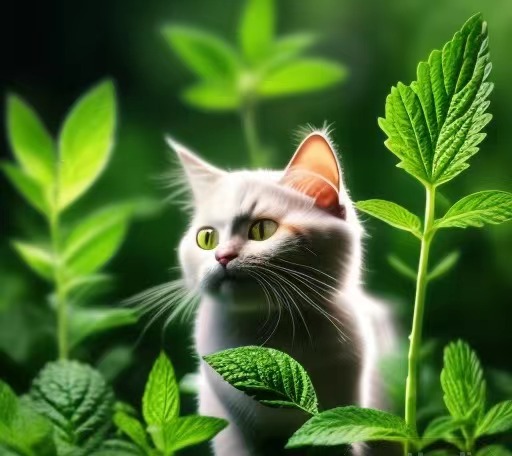Catnip is a perennial herb in the mint family. It is native to Europe, Central Asia, and the Middle East, but it is now grown all over the world. Catnip is known for its intoxicating effect on cats, but it is also a popular herb used in herbal medicine and cooking.
The active ingredient in catnip is nepetalactone, an essential oil that binds to receptors in the cat’s brain. This binding causes the release of dopamine, a neurotransmitter that is associated with pleasure and reward. As a result, cats who are exposed to nepetalactone often experience a variety of behavioral changes, including:
- Rolling around
- Rubbing their bodies against objects
- Meowing and purring
- Chasing their tails
- Playing more vigorously
It is important to note that not all cats are affected by catnip. Some cats are more sensitive to nepetalactone than others, and some cats are not affected at all. Kittens under 6 months old typically do not respond to catnip.
Catnip is safe for cats to consume in small amounts. It is not addictive and does not have any long-term side effects. However, if your cat eats too much catnip, it may experience an upset stomach or vomiting.
Catnip can be used to enrich your cat’s environment and provide them with additional stimulation. You can sprinkle dried catnip on the floor or on your cat’s scratching post. You can also fill catnip toys with dried catnip. Just be sure to supervise your cat while they are playing with catnip toys, as they may tear the toy open and eat the catnip inside.

In addition to its effects on cats, catnip is also a popular herb used in herbal medicine and cooking. Catnip tea is often used to relieve stomach cramps and indigestion. Catnip can also be used to make a variety of culinary dishes, such as soups, stews, and salads.
If you are interested in using catnip for your cat or for yourself, be sure to purchase it from a reputable source. Catnip can be found in most pet stores and herbal shops.


